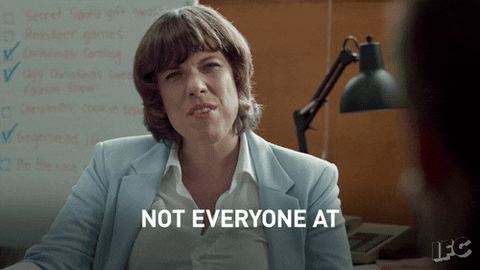Your elite degree might actually hurt your career—here's why that matters for Caribbean professionals
The global hiring landscape is shifting, and what used to be a golden ticket might now raise eyebrows
Shortlisters,
I’ve decided to spin off the ‘Top reads w/Kerry’ section in our job roundup emails into its own newsletter. Every week, I sift through the world’s top business publications 📚 — not just to stay informed, but to find the career insights that actually matter for ambitious Caribbean professionals. And well, take it from me: To earn more, you have to read more. Today’s top reads challenge some long-held assumptions about what employers truly value, and the implications for our region's talent are fascinating. Let’s dive into how global hiring trends are shifting and what that could mean for your next career move. 👇
Why some employers are saying no to elite university graduates 🎓
The big picture: A fascinating shift is happening in global hiring — some employers are actively avoiding candidates with elite university credentials. Bain is using blind interviews, McKinsey is using gamification in its recruitment process, and some firms are outright refusing to hire graduates from prestigious institutions (thanks, in part, to politics). But here’s the thing: it’s not about the institutions themselves — it’s about what employers think these credentials say about a candidate’s ability to solve real-world problems.
Why it matters: This trend has huge implications for Caribbean professionals:
While we’ve long placed premium value on overseas degrees, employers are increasingly focused on demonstrated skills and practical problem-solving ability
The shift towards skills-based hiring could actually advantage Caribbean professionals who’ve developed creative solutions in resource-constrained environments
There’s a growing appreciation for diverse perspectives and practical problem-solving abilities — something our professionals often develop naturally working across our region’s varied markets
What caught my eye: The article mentions a financial advisory CEO who says elite university graduates often approach client challenges like “textbook case studies rather than real-world problems.” This resonates deeply with what I’ve observed in our market — some of the most effective professionals I know succeeded because they mastered the art of getting things done with limited resources.
The bottom line: While prestigious degrees still carry weight, especially in traditional Caribbean corporate settings, this global shift suggests an opportunity. The key is to position yourself as someone who can bridge the gap between theoretical knowledge and practical execution. → Read more
Want to get hired? Stop talking about yourself 🎯
The big picture: A fascinating new piece from HBR tackles that dreaded interview question: “Why should we hire you?” The article reveals a crucial insight — while this question sounds similar to “Why do you want to work here?”, it requires a completely different approach. Instead of starting with your hopes and expectations, you need to lead with theirs.
Why it matters: The article outlines exactly what hiring managers are looking for when they ask this question:
Most candidates focus on their own career goals or qualifications, but hiring managers want to know how you understand their bottom line and mission—a mindset shift that can instantly set you apart
They’re trying to visualise specific ways you might contribute to that bottom line or mission — which means you need to connect your experience and unique value to their needs and the company’s culture — areas where many of us often have compelling stories but struggle to frame them effectively
They’re looking for qualities that make you stand out from other candidates — but in ways that matter to them, not just your personal achievements
What caught my eye: The article emphasises that candidates “stop thinking like historians and start thinking like marketers.” This means focusing on what gap or need the position is filling, and how your skills and experience specifically address those gaps. The most compelling example comes from a recruiting expert who shows how to transform a weak answer like “I’m a good project manager” into a powerful one: “I have experience managing complex initiatives and ensuring project goals are clear and achieved by deadline.”
The bottom line: Whether you’re interviewing remotely or in person, your success depends on flipping from “The Story of Me” to “The Story of Us.” This isn’t about modesty or bragging — it’s about demonstrating how your specific experiences and abilities can help solve their specific challenges. → Read more
Why great engineers often fail at office politics—and how to fix that ⚡️
The big picture: A fascinating deep dive from The Pragmatic Engineer reveals what truly makes engineers effective — and surprisingly little of it has to do with coding. The author shares an uncomfortable truth: most engineers who feel “stuck” in their careers haven’t bothered to understand how their organisations actually work.
Why it matters: The article identifies several key realities about organisational dynamics:
Tech skills alone won’t get you where you want to go — understanding organisational dynamics is equally crucial
Every workplace has its own unwritten rules and informal power structures — learning to read and navigate these is a skill that transcends industries
Organisations can be top-down (like Microsoft) or bottom-up (like Meta), or both — and each requires different strategies for getting things done
What caught my eye: The piece makes a powerful observation about how engineers often mislabel organisational challenges as “politics” rather than seeing them as opportunities to build crucial skills. As Sridharan notes, you can have a perfectly satisfying career focusing purely on technical excellence, but you’ll be “far likelier to be one of those rare force multipliers” if you also master organisational dynamics.
The bottom line: Whether you’re working locally or remotely, your effectiveness depends as much on understanding your organisation’s unwritten rules as it does on your technical skills. → Read more
Penn launches first-ever Ivy League AI degree—here's what it means for your career 🤖
The big picture: The University of Pennsylvania just announced the first Ivy League Bachelor’s degree in Artificial Intelligence, marking a significant milestone in how elite institutions are responding to the AI revolution. For Caribbean professionals eyeing opportunities in tech, this signals something important: AI expertise is no longer just a specialisation — it’s becoming a distinct career path.
Why it matters: This development opens up new possibilities for Caribbean professionals:
While full degree programs take time, the curriculum Penn has developed — bridging computer science, electrical engineering, and systems engineering — offers a roadmap for the skills you should be building now
Caribbean employers are already creating AI-focused roles — Caribbean Airlines, for instance, is currently recruiting their second AI position this year, suggesting a growing local market for these skills
Whether through online courses, certifications, or graduate studies, professionals who start building these competencies now will be better positioned for emerging opportunities
What caught my eye: Looking at Caribbean Airlines’s AI & Business Solutions Analyst role, what stands out isn’t just the technical requirements — they’re looking for people who can drive innovation and improve business processes using AI. This suggests that combining AI knowledge with strong business acumen could give you a significant edge.
The bottom line: You don’t need to wait for a formal AI degree to start preparing for these opportunities. While top universities are now validating AI as a distinct field, employers are already hiring. The key is to start building relevant skills now, whether through self-study, certifications, or practical experience. Your next career move in AI might be closer than you think. → Read more
What you missed
🚀 Your latest job roundup: New roles at Caribbean Airlines, Scotiabank and Guardian Group (Nov 9)
🤔 I spent a decade mastering data science across five industries in the Caribbean — now I'm leading analytics for a pan-African telco
🎧 How I became head of procurement | Michelle Mohammed (Ansa Motors)
Was this email forwarded to you? 📬 Subscribe now to get the hottest professional roles, internships, and freelance gigs delivered to your inbox every week!







